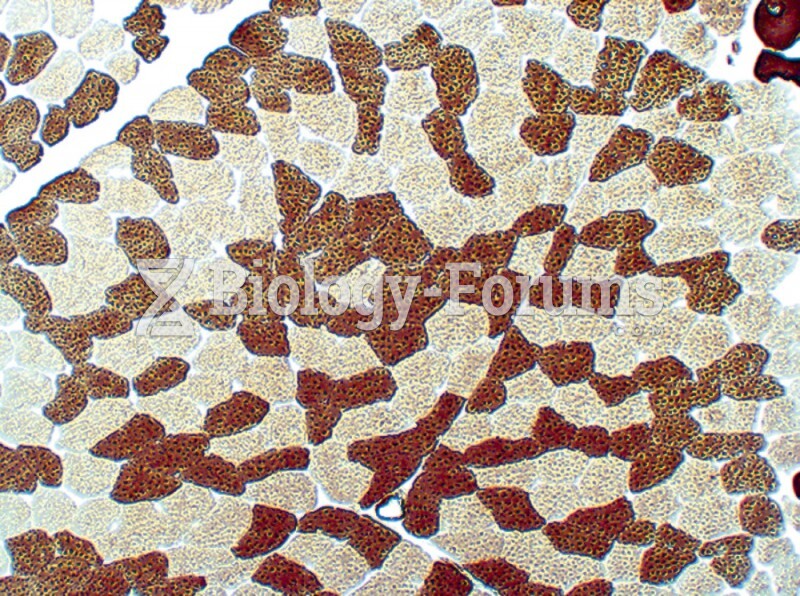|
|
|
Only one in 10 cancer deaths is caused by the primary tumor. The vast majority of cancer mortality is caused by cells breaking away from the main tumor and metastasizing to other parts of the body, such as the brain, bones, or liver.
As many as 28% of hospitalized patients requiring mechanical ventilators to help them breathe (for more than 48 hours) will develop ventilator-associated pneumonia. Current therapy involves intravenous antibiotics, but new antibiotics that can be inhaled (and more directly treat the infection) are being developed.
The liver is the only organ that has the ability to regenerate itself after certain types of damage. As much as 25% of the liver can be removed, and it will still regenerate back to its original shape and size. However, the liver cannot regenerate after severe damage caused by alcohol.
The B-complex vitamins and vitamin C are not stored in the body and must be replaced each day.
Elderly adults are at greatest risk of stroke and myocardial infarction and have the most to gain from prophylaxis. Patients ages 60 to 80 years with blood pressures above 160/90 mm Hg should benefit from antihypertensive treatment.
 A) Butterfly-shaped lupus rash. Lupus is the Latin word for wolf; the face rash was thought to look ...
A) Butterfly-shaped lupus rash. Lupus is the Latin word for wolf; the face rash was thought to look ...
 Redrape the back, face the head of the table, and apply passive touch as finishing technique. Gently ...
Redrape the back, face the head of the table, and apply passive touch as finishing technique. Gently ...
 Alternate kneading and sliding on the upper arm. Knead the upper arm muscles with a hand on each ...
Alternate kneading and sliding on the upper arm. Knead the upper arm muscles with a hand on each ...




